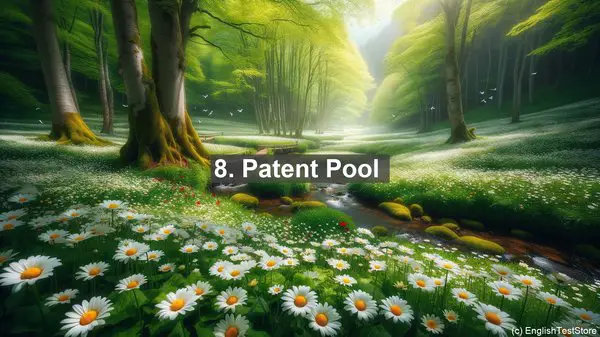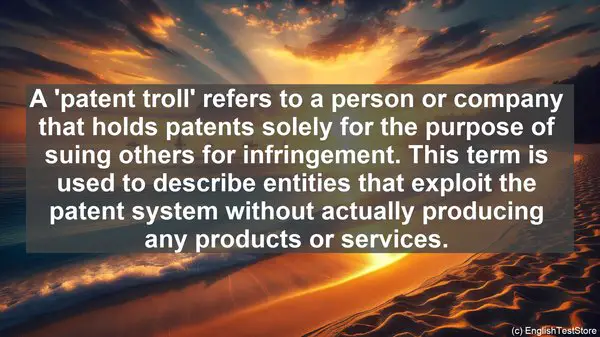Introduction: The Power of Idioms in Legal Discourse
Welcome to today’s lesson on English idioms for patent lawyers. Idioms are not just colorful expressions; they play a crucial role in legal discourse. They convey complex ideas concisely and add depth to your arguments. So, let’s dive into the top 10 idioms you should know!
1. In the Same Boat
When you say two inventors are ‘in the same boat,’ it means they are facing the same challenges or circumstances. This idiom is often used in patent law to highlight the shared struggles of inventors or the common issues in a particular industry.
2. Patent Troll
A ‘patent troll’ refers to a person or company that holds patents solely for the purpose of suing others for infringement. This term is used to describe entities that exploit the patent system without actually producing any products or services.
3. Prior Art
In patent law, ‘prior art’ refers to any existing knowledge or evidence that could invalidate a patent. It could be a previous invention, publication, or public use. Understanding the concept of prior art is crucial in determining the novelty and inventiveness of a patent.
4. Patent Pending
When a patent application is submitted but not yet granted, it is said to be ‘patent pending.’ This term is often used to indicate that an invention is in the process of being protected, even though it hasn’t received official approval yet.

5. Non-Obvious
To meet the patentability requirement, an invention must be ‘non-obvious.’ This means it should not be something that an ordinary person with average knowledge in the field could easily come up with. The non-obviousness criterion ensures that only truly innovative ideas get patented.
6. Infringement
When someone uses, makes, or sells a patented invention without the permission of the patent holder, it is considered ‘infringement.’ Infringement can lead to legal action, including monetary damages and injunctions.
7. Freedom to Operate
Before launching a new product or technology, it’s essential to assess its ‘freedom to operate.’ This means ensuring that the product or technology does not infringe on any existing patents. Conducting a thorough freedom-to-operate analysis minimizes the risk of future legal disputes.
8. Patent Pool
A ‘patent pool’ is a consortium of companies or organizations that collectively license their patents to each other. Patent pools are often formed in industries where multiple patents are required to develop a product, such as telecommunications or biotechnology.
9. Doctrine of Equivalents
The ‘doctrine of equivalents’ is a legal principle that extends patent protection to inventions that are not identical to the patented invention but are equivalent in function or result. This doctrine prevents others from making minor changes to a patented invention to avoid infringement.
10. Patent Exhaustion
The ‘patent exhaustion’ doctrine states that once a patented product is sold, the patent holder’s rights are ‘exhausted.’ This means the purchaser can use, resell, or modify the product without infringing the patent. However, the doctrine has certain limitations and doesn’t apply in all situations.

Conclusion: Mastering Idioms for Legal Success
And that wraps up our list of the top 10 English idioms for patent lawyers. Remember, idioms are not just linguistic quirks; they are powerful tools in legal communication. By mastering these idioms, you’ll not only enhance your language skills but also navigate the intricacies of patent law more effectively. Thanks for watching, and see you in the next lesson !
